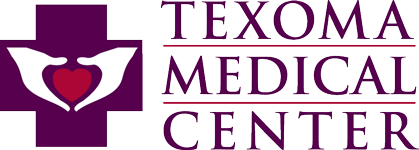Understanding Your Billing Statement
Texoma Medical Center (TMC) and TexomaCare want to make every effort to answer your billing questions. Here is a glossary of common billing terms to help you understand your billing statement.
Account Number A unique number that is assigned to you each time you visit the hospital or physician office. TMC and TexomaCare bills have different account numbers.
Adjustment A portion of your medical bill that is adjusted in accordance to the contract between TMC or TexomaCare and your insurance company.
Amount Not Covered The biIl amount that the insurance company will not pay. It may include deductibles, coinsurances, and charges for non-covered services. For example, a non-covered charge could be food trays for visitors, personal grooming supplies, take-home supplies, and private rooms.
Amount Payable by Plan The amount your insurance plan pays or covers for your treatment, less any deductibles, coinsurance, or charges for non-covered services.
Benefit The services that are covered under your insurance plan.
COBRA Insurance Health insurance coverage that you can purchase when you are no longer employed, or awaiting coverage from a new insurance plan to begin. Coverage may be purchased for up to 18 months from your date of separation. It is generally more expensive than insurance provided through the employer but less expensive than insurance purchased as an individual policy.
Coinsurance The percent of coverage not covered under your insurance benefits. For example, your policy may cover 80 percent of charges. Your coinsurance/patient portion would be the remaining 20 percent.
Copayment/Copay A set fee established by the insurance company for a specific type of visit. This amount is due from the guarantor. This information can routinely be located on the insurance card and will be different amounts according to the type of visit. For example, Emergency Room Visit - $50, Inpatient Stay - $100, Physician Office Visit - $20.
Date of Service (DOS) The date(s) when you were provided healthcare services. For an inpatient stay, the dates of service will be the date of your admission through your discharge date. For outpatient services and physician office visits, the date of service will be the date of your visit.
Deductible An amount that must be paid on an annual basis that is established by the insurance company and your benefits plan. Call your insurance company for the most up-to-date information regarding your deductible.
Explanation of Benefits (EOB) This is a notice you receive from your insurance company after your claim for healthcare services has been processed. It explains the amounts billed, paid, denied, discounted, uncovered, and the amount owed by the patient. The EOB may also communicate information needed by the insured in order to process the claim.
Guarantor The person responsible for payment of the bill.
Health Maintenance Organization (HMO) An insurance plan that has contracted with providers to provide healthcare services at a discounted rate. These services will require prior pre-certification, authorization and/or referrals.
Managed Care An insurance plan that has a contract agreement with hospitals, physicians and other healthcare providers.
Medicaid A state-administered, federal-and state-funded insurance plan for low-income families who have limited or no insurance.
Medicare A health insurance program for people age 65 and older, some people with disabilities under age 65 and people with end-stage renal disease (ESRD). For questions concerning the Medicare program, call the Social Security Administration toll-free at 1-800-772-1213, or call your local Social Security office.
Medicare Part A (Hospital Insurance) Healthcare coverage for inpatient stays at participating hospitals.
Medicare Part B (Medical Insurance) Healthcare coverage for doctors' services, outpatient hospital care, and some other medical services that Part A does not cover, such as the services of physical and occupational therapists, and some home health care.
Medigap Medicare Supplemental Insurance available by private insurance companies that pays for some services not covered by Medicare A or B, including deductible and coinsurance amounts.
Non-Covered Services Services not covered under the patient's insurance plan. These charges are the patient's responsibility to pay.
Out-of-Network Provider/Non-Participating Provider The provider is not part of the insurance plan's network of contracted providers. Generally, services at out-of-network providers are paid for at a lower rate by the insurance plan and at a higher rate by you.
Out-of-Pocket Costs The amount that you pay until your benefit coverage reaches 100 percent.
Point-of-Service Plans An insurance plan that allows you to choose doctors and hospitals without first having to get a referral from your primary care physician.
Pre-Authorization Number Authorization given by a health plan for a member to obtain services from a healthcare provider. This is commonly required for hospital services.
Pre-Certification Number A number obtained from your insurance company by doctors and hospitals. This number will represent the agreement by the insurance plan that the service has been approved. This is not a guarantee of payment.
Preferred Provider Organizations (PPO) An insurance plan that has a contract with providers to provide healthcare services at a discounted rate. These services may require prior pre-certification, authorization and/or referrals.
Referral Approval or consent by a primary care doctor for a patient to see a certain specialist or receive certain services.
Subscriber The person responsible for payment of premiums or whose employment is the basis for eligibility for a health plan membership.
Online Bill Pay
Pay your hospital bill online -- easily and quickly -- from the comfort of your home or office. PAY YOUR BILL ONLINE >
